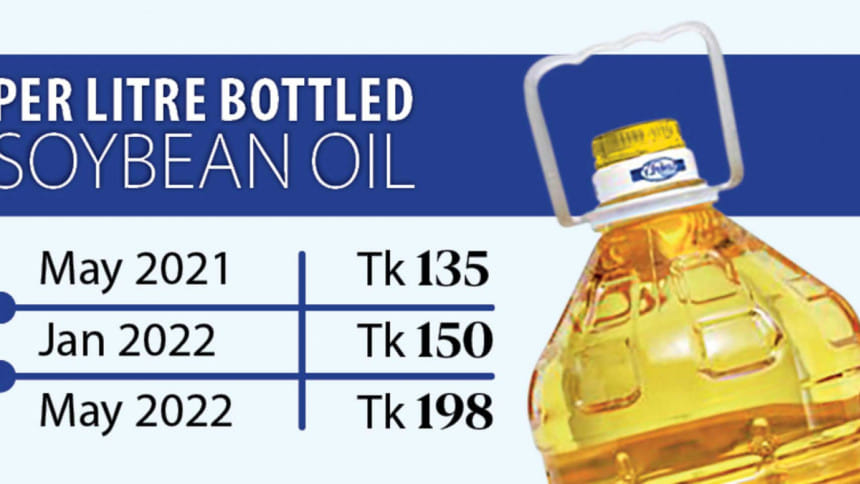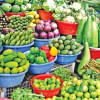Edible oil prices: What goes up, never comes down

We are deeply concerned with yet another hike in the prices of edible oil, which will add to the ever-increasing woes of consumers already struggling to make ends meet on their limited incomes. The government has fixed the price of a litre of bottled soybean oil by 23.65 percent—the biggest such increase in Bangladesh's history—reportedly to address an unprecedented crunch of the essential cooking item. Prior to Eid, when demand for it was at its peak, cooking oil all but disappeared from the market, following a ban by Indonesia on palm oil exports. It was the nail in the coffin of an already unstable market, which has had to confront rising production costs amid higher raw material prices in the international markets and rising shipping costs, supply disruptions and pent-up demand.
In addition to the external shocks, we have observed—with increasing alarm—how unscrupulous businessmen have created artificial crises in the domestic market in an effort to drive up prices over multiple occasions in the past year. In fact, we have penned many editorials urging authorities to take steps to reign in the price manipulations at each of the four stages of the value chain within the country, involving refiners, dealers or supply order traders, wholesale traders and retailers. Unfortunately, we are yet to see decisive action by the government against these actors despite detailed reports of such manipulations.
Over the past year, the price of edible oil has gone up eight times. While we have little control over the external shocks, the government can and must do more to ensure that it—and not the unscrupulous traders—is calling the shots in the domestic market and that it is representing the best interests of the consumers, not that of the traders. Meanwhile, given that the supply crunch in the international market will not ease anytime soon, the government must urgently find alternative sourcing destinations, alternative edible oils and take trade-related measures to maintain a smooth supply of edible oil in the local markets at affordable prices.
The commerce ministry is reportedly going to recommend that the National Board of Revenue (NBR) reduce the import duty on canola, sunflower and olive oil to 10 percent from the existing 32 percent. Given the current constraints, this would no doubt be a welcome move, but we can't help but wonder if the benefits would actually trickle down to the consumers. We have observed how the government waiver of 15 percent value-added tax at the production stage and 5 percent at the retail level, and another 10 percent VAT cut at the import stage, had little effect in stabilising prices of edible oil. Will the government ensure that history doesn't repeat itself? We urge them to open their eyes to the unending sufferings of the middle and working classes as they formulate policies to tackle the crisis.

 For all latest news, follow The Daily Star's Google News channel.
For all latest news, follow The Daily Star's Google News channel. 







Comments